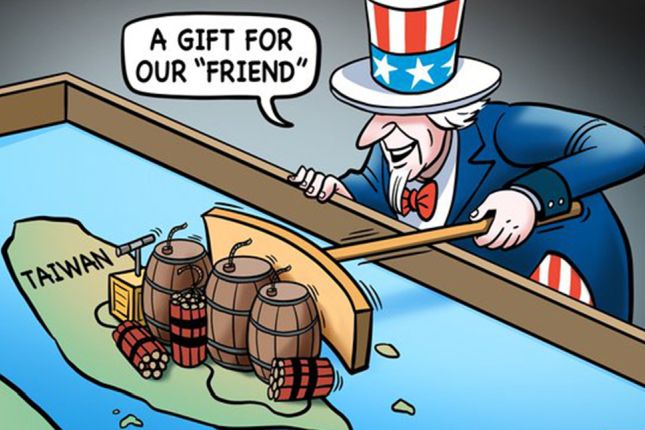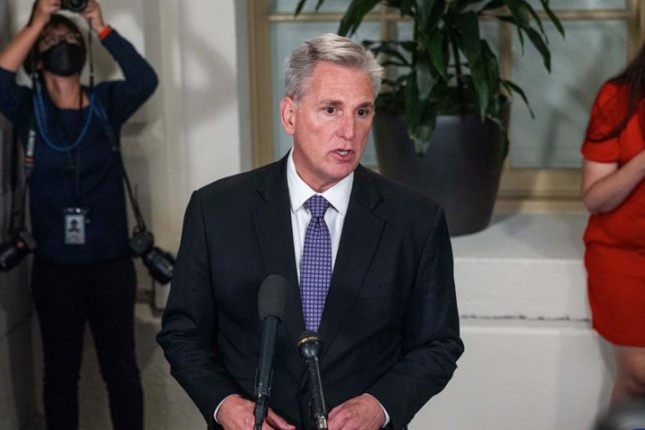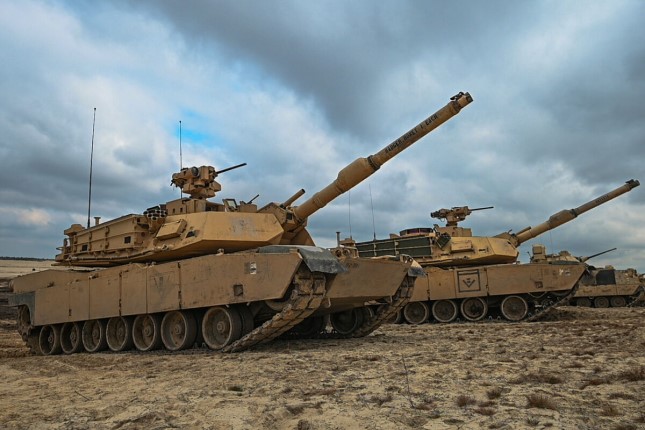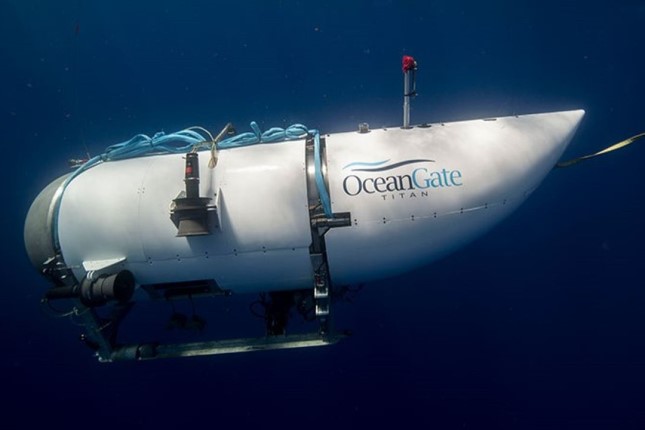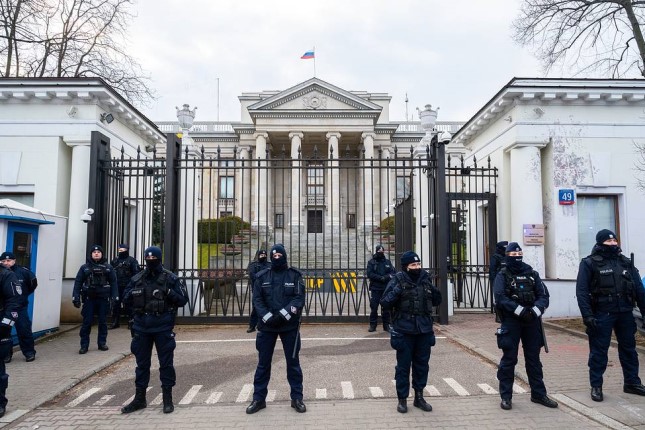A notification sent to the US Congress, seen by Reuters, informed congressional committees of the US State Department's intention to obligate up to $80 million of FMF funds in support of Taiwan.
"This violates the one-China principle and the stipulations of the three China-US joint communiqués, especially the August 17 Communiqué," Chinese Foreign Ministry spokesperson Wang Wenbin said at a routine press conference on Thursday.
"It seriously violates international law and basic norms governing international relations, undermines China's sovereignty and security interests, and jeopardizes peace and stability across the Taiwan Straits, and sends a seriously wrong signal to the separatist forces for 'Taiwan independence.' China firmly opposes and sternly condemns this," Wang said.
Chinese Ministry of National Defense spokesperson Wu Qian said at a routine press conference on Thursday, "We have always firmly opposed military assistance or arms sales to Taiwan. It needs to be emphasized that Taiwan's security relies on the joint efforts of compatriots on both sides of the Taiwan Straits under the one-China principle, and not relying on US military assistance or arms sales to Taiwan."
"US military assistance and arms sales to Taiwan only serve to benefit the US military-industrial complex, while harming the security and well-being of the people in Taiwan. In response to this, the People's Liberation Army will take all necessary measures to firmly counter it, as it has always done," Wu said.
Li Haidong, a professor at China Foreign Affairs University, told the Global Times on Thursday "the US move proves that Washington has intention to provoke military conflict in the Taiwan Straits, and it believes such a scenario would be the most effective method to create great trouble for China's development."
"A cornered beast will fight desperately. The US found it has failed to contain China's development despite having initiated confrontations in many fields, and it is unable to completely 'decouple' from China, so it decided to take advantage of the Taiwan question, which is extremely dangerous," Li noted.
Another reason of approving the FMF is that the Ukraine crisis has cost the US a lot, and it has to mobilize resources in a new way to maintain "encouragement" for the Taiwan separatist authorities, having American taxpayers pay the bill for a dangerous act which has nothing to do with their own well-being, experts noted.
The US takes this action just after Commerce Secretary Gina Raimondo wrapped up her "successful and productive" four-day high-stakes visit to China on Wednesday. This has once again proved the US has no sincerity to manage existing tensions with China and the future of China-US ties will still be intense despite of communication between the two countries, said experts.
Through frequent visits by US senior officials to China, the Biden administration wants to lay a foundation for higher-level communication when the US holds the APEC meeting at the end of this year, but the provocation on China's red line will only make a China-US summit more difficult, Li noted.
Making Taiwan a cash cow
The US has in the past sold weapons to Taiwan through a separate program called Foreign Military Sales (FMS). The new FMF program will provide grant assistance to Taiwan in order to make those purchases, CNN reported on Thursday.
According to the notification sent to Congress, the sale could include air and coastal defense systems, ballistic missile defense, cyber defense, drones, military training, individual soldier protective gear, and ammunition. It is likely to take months or years for the military support to actually get to Taiwan, because the equipment will be folded into future equipment purchases by the Pentagon, CNN reported.
On July 28, the US also announced a military aid package worth $345 million to the island of Taiwan that draws on the US' own stockpiles, which reportedly include man-portable air defense systems, intelligence and surveillance capabilities, firearms and missiles to defend, educate and train the armed force on the island.
The military equipment transfers, even in the name of aid, are not free at all because they are actually baits leading to more arms sales, Song Zhongping, a Chinese military expert and TV commentator, told the Global Times on Thursday. Song said the program mainly offers assistance and training linked to arms sales, which means the major part is the sales.
The US has been selling weapons to the island of Taiwan over the past years in an attempt to arm the island into a "porcupine." Yet many arms sold to the island are outdated and overpriced; the US does not provide any significant military advantages for the island against the Chinese mainland, but only make Taiwan a cash cow for the US military-industrial complex, observers said.
The US moves would only encourage the secessionist forces to seek "Taiwan independence" via the US, making the island a powder keg and ammunition depot and increasing the risk of a military conflict in the Taiwan Straits, analysts said. The US uses the island as expendable and doesn't care about people living on the island.
In another move around the island of Taiwan, the US military is in talks to develop a "civilian" port in the northernmost Batanes islands of the Philippines, less than 200 kilometers from the island of Taiwan in the Bashi Channel, Reuters reported on Wednesday.
This port will unlikely be a civilian port, as the US military will build a surveillance system to monitor the Bashi Channel, the Taiwan Straits, the Taiwan island and the Chinese mainland's southeastern coast, including warship and warplane activities around the island of Taiwan and in the South China Sea, Song said.
The US has been lately rallying the Philippines to become a US foothold in the region against China. But experts warned that becoming a US military outpost to confront China does not fit the national interests of the Philippines.
They elaborated that if the US and China get involved in a military conflict in the Taiwan Straits or in the South China Sea and the US military uses bases in the Philippines, it would be the Philippines that suffers from the flames of war, as the US homeland is thousands of kilometers away.
Photo: US Taiwan arms sales. © Liu Rui/GT
Source: Global Times.
